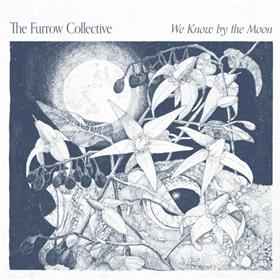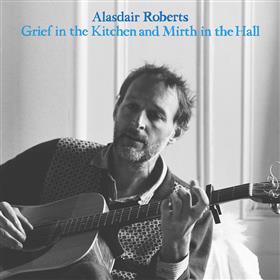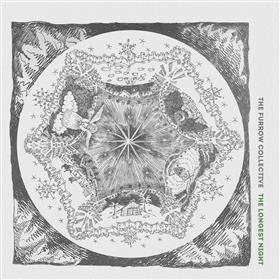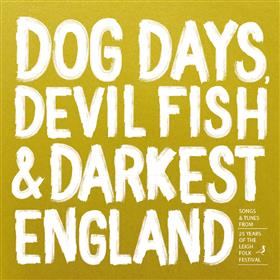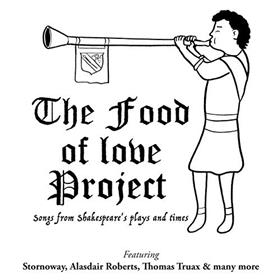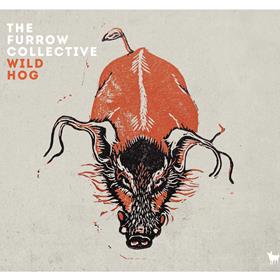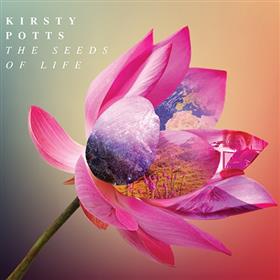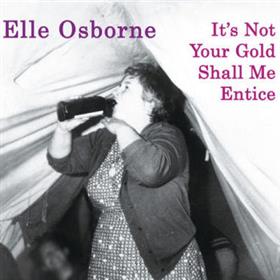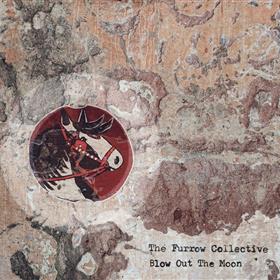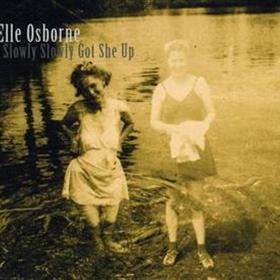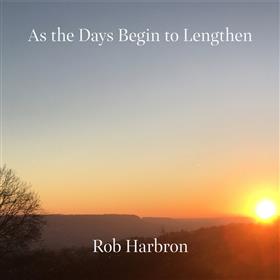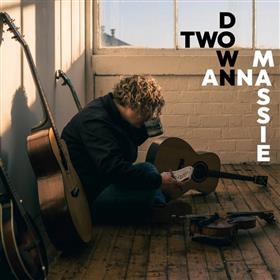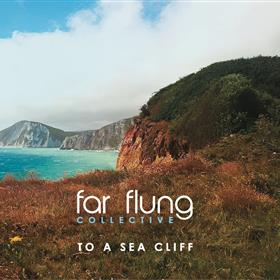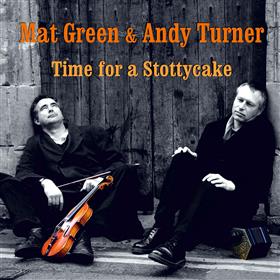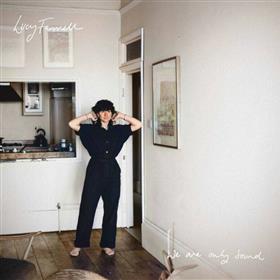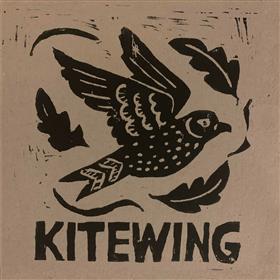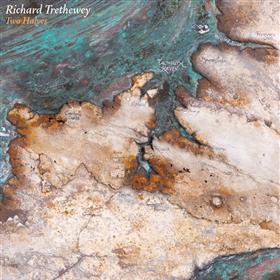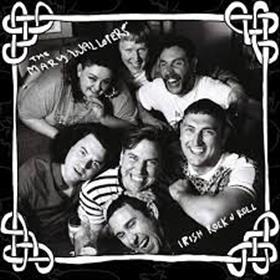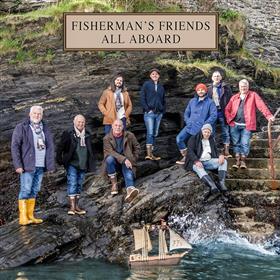Elle Osborne - If You See a Rook on Its Own, It’s a Crow
2020 studio album
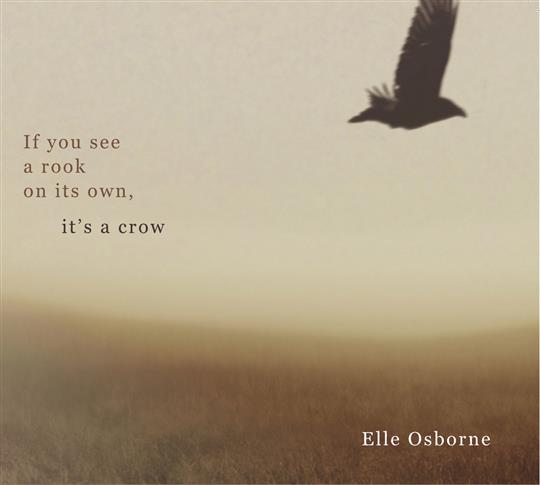
the bright young folk review
While I’m ashamed to confess I wasn’t aware of Lincolnshire born singer Elle Osborne until the release of her almost wholly self-penned It’s Not Your Gold Shall Me Entice, its cover featuring her grandmother, who gave The Watersons their first club bookings, getting stuck into a festival drinking contest and underlining Osborne’s pedigree.
I was instantly hooked and have been eagerly awaiting this follow-up. Produced by Stereolab’s Joe Watson, it sports an intriguing title, apparently deriving from an observation made by her father and forming part of the lyric to the opening track, Birds of the British Isles.
The number makes references to knowing “the heft of heron and the light of blackbird calls” but not the country’s entire ornithological spectrum as a springboard for deeper concerns. She sings “I know what to say to people when they pick on you / And I’ve almost learnt to greet the haters with loving smiles”. Like many of her songs, she has knack of catching you offguard.
Alasdair Roberts reprises his guest appearance from last time around on harmonies, the album also featuring contributions from Alice Mary on guitar and bass and both Alex Neilson (who’s hailed her voice as a cross between Lal Waterson and Nico) and Stephen Hiscock on drums.
She continues to wander the outdoors, heading down Ing’s Lane, accompanying herself on hesitant plucked violin, singing how “I know where the stream runs free / I know where the fillies stray / I know where the rope swing sways”, an evocation of childhood memories that again comes with a hint of darkness.
Growing up, Osborne taught herself to ride Gypsy horses on the beach, and they’re the subject of No Hoof, No Horse, a jaunty fiddle tune that might have come from The Everglades. Observation of the horses, tethered and open to the rain and wind mingles with the image of “cheeky mares” trotting and “wickering” behind the singer, en route to the local horse fair, in a reference to the area’s Gypsy horse traders.
The lyrical landscape shifts with Comedy & Tragedy (Dr. Elliott’s Remedy), a playful number that, set to a suitable Hellenic folksong sway, pits the two styles of Greek drama as a couple of pub regulars. The braggado male Comedy buys drinks all round and carouses with no idea of when to call it a night, while his female opposite number Tragedy looks on, knowing it’ll all end in tears (“Comedy everyone’s waiting to see you / Fall flat on the floor”), the final verse repeating the set-up but switching genders as it ends in a Slavic singalong.
Opening with hollow drums, the vocals slightly muffled and mixed back, Bread & Whisky harks to her storytelling skills as she sketches marital and neighbourhood tensions and tells of sending some jack the lad chancer who “tried to get the better of me” home with “rings in his ears and stars in his eyes”.
Then comes another memory with Stolen Goods, which cleverly weaves metaphors about appearance and reality into the lyric with reference to pinchbeck, a form of brass that closely resembles gold, and St Audley’s lace, a “tawdry” form of necklace worn by women in the 16th century to give the impression of being classy, in a song about a toxic relationship that ends with the caution that they’ll “take your gold / and spend it on sweeties”.
Clearly she’s well-read, a subtle nod to Shakespeare’s The Winter’s Tale there extended to the punningly titled, politically toned The Taming of the Shrewd. Emerson’s chiming Velvet Underground-like guitar underscores a magnificent understatedly anthemic ballad about speaking out against those with an “air of one used to entitlement” streaked with sepia-toned Americana colours as, borrowing Harlan Howard’s famous phrase, she sings “I’ve got three chords and the truth / I’m going to put them to good use”.
Another heartstopping highlight comes with the Celtic strains of The Selkie, a poignant fiddle backed ode to someone who has passed on which, the melody hints at Hard Times Come No More, hollow drums and creaking in the wind sounds as she quaveringly sings “wherever you are now, I hope you’re free / And wherever you are now, I hope they’ve got good whisky / And wherever you are now, I hope you rest in peace” as it gathers to an ululating close.
The image of the selkie repeated, the album draws to a close with, first, the five-minute Tundra, a marvellous rumbling drums and toy piano jingling eco-lament for the plight of the polar bear and a climate change call that “if we want to see these things thrive / more than just survive / then this is no time for silence”.
Finally, before closing with the brief Celtic fiddle air The Sighs of the Whales, there’s The Offing, opening defiantly with “the lord is not my shepherd, and I am not a sheep” before referencing Robert Frost on a number about having to live with a debilitating health condition strikingly captured in the line “I am honeycombed monochrome bones / written in my chromosomes” and having “5 years of rainy days / When I only saved for 2”.
Conjuring mortality as the narrator declares “I’m ready / So sing me to the place / where singing comes from”, it’s delivered not in self-pity, but as reminder that “everyone you meet / has a life as complex as your own” and how we should “be as kind as you can / kinder than you can”.
If this isn’t on the Folk Awards Best Album shortlist next year, they may as well scrap the whole event.
Mike DaviesReleased on CD and download on 9th House Recordings June 5 2020. Recorded and mixed by Joe Watson.
1. Birds of the British Isles
2. Ing’s Lane
3. No Hoof, No Horse
4. Comedy & Tragedy (Dr Elliott’s Remedy)
5. Bread & Whisky
6. Stolen Goods
7. The Taming of the Shrewd
8. The Selkie
9. Tundra
10. The Offing
11. The Sighs of Whales

